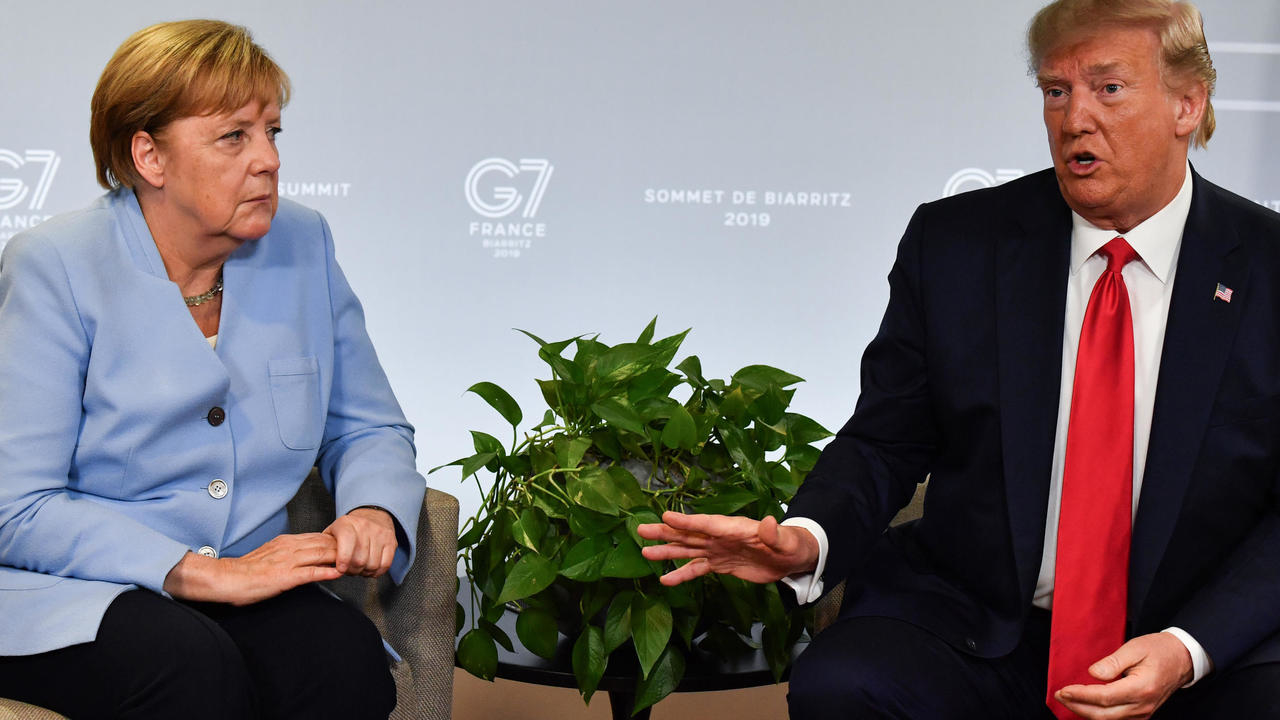
The United States will slash its military presence in Germany by 11,900 troops in what the Pentagon on Wednesday called a "strategic" repositioning but President Donald Trump said was to
punish Berlin for its weak defense spending.
US Defense Secretary Mark Esper said that the Pentagon will be sending home about 6,400 of its military personnel in Germany, and move nearly 5,600 to other NATO countries, including Italy and Belgium.
Some could also be relocated to Poland and the Baltic countries if Washington can reach agreements with them, he said.
He stressed that the action is part of his broader plan to reposition US military forces around the world to better address key threats and enhance flexibility, including with the NATO alliance, which is focused on deterring a possible Russian threat to Europe.
But at the White House Trump told reporters that Germany has not paid its fair share for the defense of Europe.
"They are there to protect Europe, they are there to protect Germany, and Germany is supposed to pay for it," Trump said of the troops.
"We don't want to be the suckers anymore.... We're protecting Germany, so we're reducing the force because they're not paying the bills."
In moves that could begin within weeks, some US command operations currently in Germany will be moved to Belgium and Italy, where they will be located with their NATO counterparts, Esper said.
"This will strengthen NATO and improve the operational efficiency and readiness of over 2,000 (US) service members," he said.
The planned relocation of 2,500 US air force personnel from Britain to Germany has been cancelled.
The Pentagon also will move an F-16 fighter squadron from Germany to Italy, closer to the Black Sea area where they can protect NATO's southeastern region, he said.
Another command unit and US troops could be rotated into Poland, Esper said, if Warsaw signs a defense cooperation and burden-sharing agreement crafted by Trump and Polish President Andrzej Duda in June.
- 'Strategic and positive shift' -
"The repositioning of our forces in Europe constitutes a major strategic and positive shift," Esper said.
"These changes will unquestionably achieve the core principles of enhancing US and NATO deterrence of Russia; strengthening NATO; reassuring allies; and, improving US strategic flexibility," he said.
The goal is "to enhance deterrence and reassure allies along NATO's southeastern flank," Esper said.
The move could have a significant economic and strategic impact in Germany, where tens of thousands of US troops have been stationed since the end of World War II.
Earlier this month, the leaders of four German states urged the US Congress to block the troop reduction, warning it could weaken the Atlantic alliance's front against Moscow.
Esper said the move was long-discussed and was not the result of President Donald Trump's unhappiness with the relationship between Washington and Berlin.
Trump abruptly announced plans for the cut in June amid rising political and trade tensions between the two countries.
That came after German Chancellor Angela Merkel rejected Trump's plan to convene the Group of Seven leaders in Washington, citing the ongoing coronavirus threat. At the time, Trump maintained the virus' spread was in decline.
Angered, Trump postponed the summit and then said he would expand the group to include Russian President Vladimir Putin.
Russia was expelled from the elite group after its seizure of Ukraine's Crimea region on the Black Sea in 2014.AFP






































